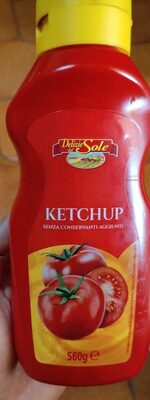
Barcode: 8017596019790
Ketchup
HALAL
📝 Reason: Quranic standards are satisfied in this product. Surah Al-Baqarah (2:172) commands believers to eat pure provisions. Our analysis detected no pork derivatives (6:145), no blood (2:173), and no intoxicants—aligning with Hanafi, Maliki, Shafi’i, and Hanbali rulings.
🏷️ Category: Condiments, Sauces, Tomato Sauces, Ketchup, Groceries
📄 Certificates: No Preservatives
Ingredients:
Details
Ketchup and Its Halal Status
Ketchup, a popular condiment globally, has made its way into various dishes, from fries to burgers. For many Muslims, clarifying whether this product is halal is crucial. Let’s dive into the Halal status of Ketchup and explore its ingredients in detail.
Understanding Halal Standards
According to Islamic dietary rules, for a product to be halal, it must be free from prohibited substances, such as pork derivatives, intoxicants, and blood. Ketchup satisfies these Quranic guidelines, particularly Surah Al-Baqarah (2:172), which advises believers to consume pure provisions.
Ingredients Analysis
The ingredient list of typical Ketchup includes:
- Tomato paste (50%)
- Water
- Glucose syrup
- Beet vinegar (5.9%)
- Sugar (5.5%)
- Salt
- Onion
- Spices (0.1%)
Let’s break down each component to determine its status in accordance with Halal laws.
Ingredient Breakdown
- Tomato Paste (50%): This ingredient is derived from tomatoes, classified botanically as a fruit. Its consumption is completely permissible in Islam.
- Water: Essential for various recipes, water is naturally halal.
- Glucose Syrup: Made from starch, glucose syrup is halal and commonly used in food products as a sweetener.
- Beet Vinegar (5.9%): Vinegar derived from beets is generally considered halal, as it is produced through fermentation without any haram substances.
- Sugar (5.5%): Sourced from sugar cane or sugar beets, this ingredient is 100% halal.
- Salt: An essential mineral, salt is naturally halal.
- Onion: This bulb vegetable is widely used in cooking and is permissible in Islam. Its versatility makes it a staple in many dishes, reinforced by the Hadith in Sahih Muslim (2049).
- Spices (0.1%): Spices add flavor and depth to Ketchup and are permissible in Islam.
Halal Certification and Quality
While this Ketchup does not carry a specific halal certification, its ingredients align with Islamic dietary laws. It is also noted that the product contains no preservatives, making it a healthier choice. The absence of harmful chemicals and ingredients further supports its halal status.
Conclusion
The combination of wholesome ingredients and adherence to Islamic guidelines confirms that Ketchup is indeed halal. With no pork derivatives, blood, or intoxicants present, you can confidently enjoy this delicious condiment with your meals. Always check for updates on ingredients and certifications, but rest assured, this Ketchup meets halal standards!
